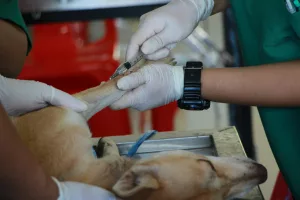Understanding our feline companions’ behavior is crucial for providing them with proper care and ensuring their well-being. One common behavior that cat owners may observe is when their cat refuses to cover its waste in the litter box. This behavior can be perplexing and may indicate various underlying reasons. Cats, by nature, are meticulous groomers and have a strong instinct to bury their waste. This behavior stems from their survival instincts in the wild, where covering their scent helped them avoid predators or potential threats. However, in a domestic setting, certain factors can affect this instinctual behavior.
Health Issues
If your cat suddenly stops covering its waste, it could be a sign of an underlying health issue. Cats may associate pain or discomfort with the litter box, leading them to avoid covering their waste. Conditions such as urinary tract infections, constipation, or arthritis can all contribute to this behavior.
Signs of Health Problems
Watch for other signs of health issues, such as frequent urination or straining, vocalization while using the litter box, or even changes in appetite and grooming habits. If you notice any of these accompanying symptoms, a trip to the veterinarian is warranted. Regular vet check-ups can also help catch and address health problems early.
- Frequent Vet Consultations: Some cat owners find that bi-annual vet visits help keep on top of subtle health changes that might otherwise go unnoticed.
- Home Monitoring: Consider keeping a health journal for your cat, noting any changes in behavior or litter box habits.
Practical Tips
- Regular Vet Visits: Schedule regular check-ups for your cat to monitor their health and catch any issues early.
- Observe Changes: Keep an eye out for any sudden changes in your cat’s behavior or litter box habits, as these can be indicators of health concerns.
Environmental Factors
The environment in which your cat’s litter box is placed can also influence their behavior. Cats are sensitive to changes in their surroundings, and factors such as the type of litter, cleanliness of the litter box, or the presence of other pets nearby can impact their litter box habits.
Choosing the Right Litter
Cats can be quite particular about the type of litter they prefer. Some cats dislike scented litters or certain textures. Experiment with different types to see which one your cat prefers. Clumping litter is often favored by many cats because it’s easier for them to dig and cover.
- Natural vs. Artificial Litter: Some cats prefer natural litters like walnut or corn-based options over clay.
- Dust-Free Options: Look for low-dust or dust-free litters especially if your cat has respiratory issues.
Litter Box Placement
Placement matters. Cats prefer quiet, low-traffic areas where they feel safe. Avoid placing the litter box near loud appliances or in areas with a lot of foot traffic. It’s also a good idea to have one more litter box than the number of cats in the household—this way, your feline friends won’t have to compete for a spot.
- Experiment with Locations: Try moving the box to different rooms to see if your cat has a preference.
- Consider Accessibility: For older cats or those with mobility issues, ensure the litter box is easily accessible.
Practical Tips
- Keep It Clean: Scoop the litter box daily and change the litter regularly to keep it fresh and inviting.
- Provide Options: Offer different types of litter and boxes to see what your cat prefers.
Stress and Anxiety
Cats are known to be highly sensitive animals, and stress or anxiety can manifest in various behaviors, including changes in litter box habits. Major changes in routine, introduction of new pets, or environmental stressors can all contribute to a cat’s refusal to cover its waste.
Identifying Stressors
Look for potential stressors in your home that might be affecting your cat. Have you recently moved, changed your work schedule, or introduced a new pet or person into the home? All these changes can unsettle your cat.
- Observe Routine Changes: Even minor changes like moving furniture can stress some cats.
- Monitor Interactions: New pets or even guests can influence your cat’s comfort level.
Reducing Stress
Create a calm environment for your cat. Provide plenty of enrichment and playtime to help them expend energy and reduce anxiety. Consider using pheromone diffusers, which can have a calming effect on cats.
- Enrichment Activities: Puzzle feeders and interactive toys can help distract and comfort an anxious cat.
- Safe Retreats: Ensure your cat has access to high perches or quiet spots where they can feel secure.
Practical Tips
- Routine Is Key: Maintain a consistent routine for feeding, play, and interaction with your cat.
- Provide Safe Spaces: Ensure your cat has quiet, safe areas where they can retreat and relax.
Social Hierarchy
In multi-cat households, the dynamics of the social hierarchy can play a role in litter box behaviors. Dominant cats may refuse to cover their waste as a way to assert their status, while more submissive cats may cover their waste as a sign of submission.
Observing Cat Interactions
Pay attention to how your cats interact with each other. Is there a dominant cat that tends to control resources like food, toys, or litter boxes? Understanding these dynamics can help you manage their environment more effectively.
- Watch for Aggression: Note any bullying behavior around shared resources.
- Identify Peaceful Times: Cats often show their social structure during feeding or playtimes.
Managing Multi-Cat Households
Provide separate resources for each cat to reduce competition. This includes food and water bowls, litter boxes, and sleeping areas. Ensure each cat has access to their own space.
- Establish Zones: Create separate areas in your home for each cat to minimize conflict.
- Use Feliway MultiCat: This synthetic cat pheromone can help reduce tension in multi-cat homes.
Practical Tips
- Multiple Litter Boxes: Place multiple litter boxes in different locations to reduce tension and competition.
- Monitor Behavior: Watch for signs of bullying or aggression and intervene if necessary.
Behavioral Training
If your cat is consistently not covering its waste, it’s important to address the issue proactively. Providing a comfortable and clean litter box environment, regular vet check-ups, and addressing any stressors can help modify your cat’s behavior.
Training Techniques
Positive reinforcement can be effective. Reward your cat when they use the litter box correctly, perhaps with a treat or extra affection. Avoid punishment, as this can increase stress and worsen the issue.
- Use Treat Dispensers: Encourage your cat by associating the litter box with positive experiences.
- Consistency is Key: Reinforce good behavior consistently to establish strong habits.
Consulting a Behaviorist
If the issue persists despite your efforts, it might be worth consulting a feline behaviorist. These professionals can offer tailored advice and training techniques to help address the issue.
- Seek Recommendations: Ask your vet for behaviorist referrals who specialize in feline issues.
- Consider Online Consultations: Many behaviorists offer virtual sessions, which can be more convenient.
Practical Tips
- Reward Good Behavior: Use treats and praise to encourage proper litter box usage.
- Seek Professional Help: If needed, don’t hesitate to reach out to a professional for guidance.
Creating a Cat-Friendly Environment
Ensuring your cat is happy and comfortable in their home environment can go a long way in preventing litter box issues. Consider the following elements:
Enrichment and Play
Cats need mental and physical stimulation to stay healthy and happy. Invest in toys, scratching posts, and climbing structures. Regular playtime not only strengthens your bond but also helps alleviate stress.
- Interactive Play: Use wand toys or lasers to engage your cat in active play sessions.
- Rotate Toys: Keep your cat interested by changing toys regularly.
Safe Spaces
Cats appreciate having their own space where they can retreat and relax. This could be a cozy bed, a perch by a window, or a hidden nook. Consider your cat’s preferences and provide ample options.
- Window Perches: These are great for cats who enjoy watching outdoor activity.
- Private Hideouts: Offer covered beds or boxes for your cat to hide and feel secure.
Practical Tips
- Interactive Toys: Rotate your cat’s toys to keep them engaged and curious.
- Vertical Spaces: Cats love to climb. Provide shelves or cat trees for them to explore.
Nutrition and Hydration
Diet can also impact your cat’s litter box habits. Inadequate nutrition or dehydration might lead to constipation or other digestive issues, affecting how your cat uses the litter box.
Balanced Diet
Ensure your cat is receiving a balanced diet that meets all their nutritional needs. High-quality cat food can support overall health and promote normal litter box behavior.
- Protein-Rich Foods: Cats are obligate carnivores and require diets rich in animal protein.
- Avoid Fillers: Foods with minimal fillers like corn or wheat can improve digestion.
Hydration
Cats often don’t drink enough water, especially if fed primarily dry food, which can lead to urinary or digestive issues.
- Encourage Drinking: Use a cat water fountain to entice your feline to drink more.
- Wet Food Benefits: Incorporating wet food can help keep your cat hydrated.
Practical Tips
- Monitor Diet: Adjust your cat’s diet if you notice digestive issues impacting their litter box habits.
- Provide Fresh Water: Ensure your cat always has access to clean, fresh water.
By considering instinctual behaviors, health issues, environmental factors, stress, social dynamics, and nutrition, you can help your feline companion maintain good litter box habits and overall happiness. With patience and observation, you can create a harmonious environment that caters to your cat’s needs.



